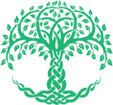Quick Search
Awareness and Approaches of Breast, Cervical, and Colorectal Cancer Screening in Rize, Türkiye
Burcu Aykanat Yurtsever1, Ceyhun Yurtsever1, Mehmet Çınar21Kanuni Training and Research Hospital, Family Medicine Clinic, Trabzon, Türkiye2Çayeli District Health Directorate, Rize, Türkiye
INTRODUCTION: It was aimed to determine the awareness and approaches of people who make up the target group of national cancer screening programs in Rize, Türkiye.
METHODS: This observational study was carried out in community health centers and family health centers be-tween January 15, and November 15, 2020, in Rize. A survey questioning their demographics, awareness, and approaches about breast, cervical, and colorectal cancer screenings was applied to women aged 2070 and men aged 5070 who volunteered to participate in the study.
RESULTS: The numbers of participants who knew about breast self-examination (BSE), clinical breast examina-tion (CBE), mammography, Pap smear test, fecal occult blood test (FOBT), and colonoscopy were found to be 216 (87.4%), 190 (76.9%), 139 (94.6%), 184 (92.0%), 156 (73.9%), and 104 (49.3%), respectively. Family physicians were the most common source of information for all cancer screen-ings except BSE. The numbers of participants who perform BSE, CBE, mammography, Pap smear test, FOBT, and colonoscopy at the recommended frequency were found to be 71 (28.7%), 51 (20.6%), 61 (41.5%), 81 (40.5%), 46 (21.8%), and 13 (6.2%), respectively.
DISCUSSION AND CONCLUSION: This study has shown that it is important to inform people more comprehensively about cancer screening and to take encouraging measures.
Manuscript Language: English




















